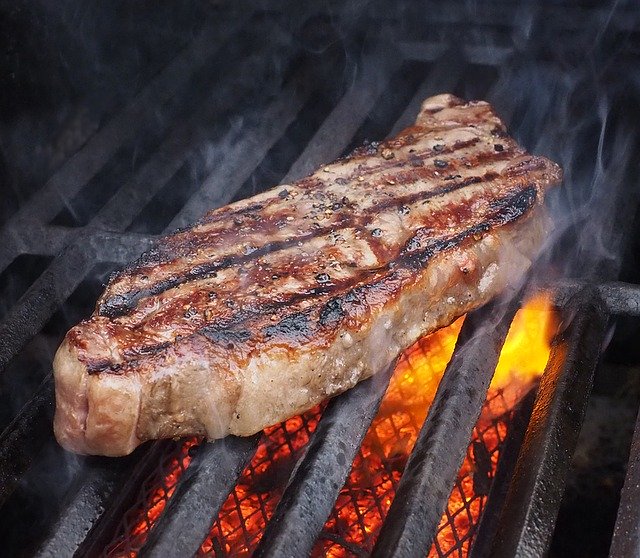
Why does the Quran forbid the eating of certain foods?
Halal, by definition, means permissible in Arabic and most foods generally are halal. The Quran declares:
‘O you who have believed, eat from the good things which We have provided for you and be grateful to Allah if it is [indeed] Him that you worship.’
Quran [2:172]
When it comes to land animals, there are four things in the Quran which are declared to be unclean and prohibited, or in Arabic, Haram. These are:
- Things that are already found to be dead.
- Blood itself is impermissible.
- The meat of pigs or swine.
- Meat that is dedicated to other than Allah when killed i.e. killed in the name of some idol.
Why is pig and swine meat prohibited?
There are four places in the Quran that say that pork is prohibited (2:173), (5:3), (6:145) and (6:115).
When talking of pigs and swine, it is their meat that is unclean and doesn’t mean they are to be treated with disdain and cruelty. The Creator has simply forbidden their meat to be eaten by believers. This might be for some of the following reasons:
- Health reasons – maybe in the past people didn’t have the cooling facilities and the cooking facilities to cook the meat at high temperatures to get rid of all germs and bacteria, and which pig is now known to harbour particularly strong forms of.
- As the saying goes ‘you are what you eat,’ the pig is known to be one of the most shameless animals there is, it enjoys seeing its mate have sex with his friend. This characteristic could be, and seems to have been passed on to the consumer in many countries with high pig meat consumption.
- It is one of the filthiest animals on earth. Wherever you find dirt and filth, the animal most likely to be hanging around there will be the pig.
‘And do not eat of that upon which the name of Allah has not been mentioned, for indeed, it is grave disobedience. And indeed do the devils inspire their allies [among men] to dispute with you. And if you were to obey them, indeed, you would be associators [of others with Him].’
Quran [6:121]
What is the rationale behind eating halal?
Monotheism is very strong in Islam and emphasised strictly. If an animal is dedicated to other than God, this is a way of worshipping another deity and this is highly detestable in the belief of one God.
In the Islamic tradition, there have been different interpretations regarding halal meat. When it comes to the issue of meat being slaughtered in a name other than the One God, the mention of another deity would render the meat impermissible.
Also, there are consequences of eating haram food. Some of these are:
Your duas (supplications) to Allah are not accepted. The following hadith stresses this point. The Messenger (SAW) mentioned the case of a man who, having journeyed far, is dishevelled and dusty and who spreads out his hands to the sky [saying]: “O Lord! O Lord!” While his food is unlawful, his drink is unlawful, his clothing is unlawful, and he is nourished unlawfully, so how can he be answered?” [Muslim]
The effects of eating haram is felt, whether consumed knowingly or unknowingly, in a negative way. Whether that makes you lethargic in doing your normal quantity or quality of good deeds, or makes you hesitant to donate to charitable causes, or inflaming your impermissible passions.
There are many negative ways in which you could be affected.
The haram food that we eat has an effect on us, our soul, our body and our piety. However, there are ways to redeem for these such as taubah (repentance) salah and sadaqah (voluntary charity). And not to forget, the Messenger of Allah (SAW) is reported to have said, ‘Allah has overlooked my community’s mistakes, forgetfulness, and that which they were forced into.’ (Ibn Majah)

Can Muslims be vegetarian or vegan?
Some Muslims think it is not possible to be vegetarian and abide by the principles of Islam. But there is no commandment that would clearly indicate that Muslims have to eat meat. The nearest verse that comes to it would be:
‘That they may witness benefits for themselves and mention the name of Allah on known days over what He has provided for them of [sacrificial] animals. So eat of them and feed the miserable and poor.’
Quran [22:28]
Although this ayah (verse) is given in the command form, grammatically in Arabic, sometimes in the Quran the command form is used in the sense of permission. So something like eat from it if you want to.
On the other hand, it does go with Islamic tradition that you sacrifice the animal and you do eat the meat so it is considered normal in Muslim societies that meat is consumed and if one chooses to be a vegetarian then this would be allowable. If ethically speaking, you feel that eating meat is wrong because of the way the animal is treated or slaughtered; the person in this situation would have to distinguish between our present situation and the situation at the time of the Prophet (SAW). Because he is our model and he ate meat, although probably not much due to limited availability of meat at that time.
If a modern situation creates a hesitation towards meat consumption because of the wider availability of other sources of nutrition and looking at the way some animals may be ill-treated in mass production factories and farms, there is nothing objectionable in choosing a vegetarian-based diet, still bearing in mind that meat consumption is permissible. It is the present circumstances that have changed and we may have other reasons for not consuming the meat, but the permitted still remains allowed for consumption.
The fact that some things are declared to be permissible does not mean that all Muslims will like it as they may not prefer that particular food but it will still be permissible.
‘Prohibited to you are dead animals, blood, the flesh of swine, and that which has been dedicated to other than Allah, and [those animals] killed by strangling or by a violent blow or by a head-long fall or by the goring of horns, and those from which a wild animal has eaten, except what you [are able to] slaughter [before its death], and those which are sacrificed on stone altars, and [prohibited is] that you seek decision through divining arrows. That is grave disobedience. This day those who disbelieve have despaired of [defeating] your religion; so fear them not, but fear Me. This day I have perfected for you your religion and completed My favour upon you and have approved for you Islam as religion. But whoever is forced by severe hunger with no inclination to sin – then indeed, Allah is Forgiving and Merciful.’
Quran [5:3]
And Allah knows best.
